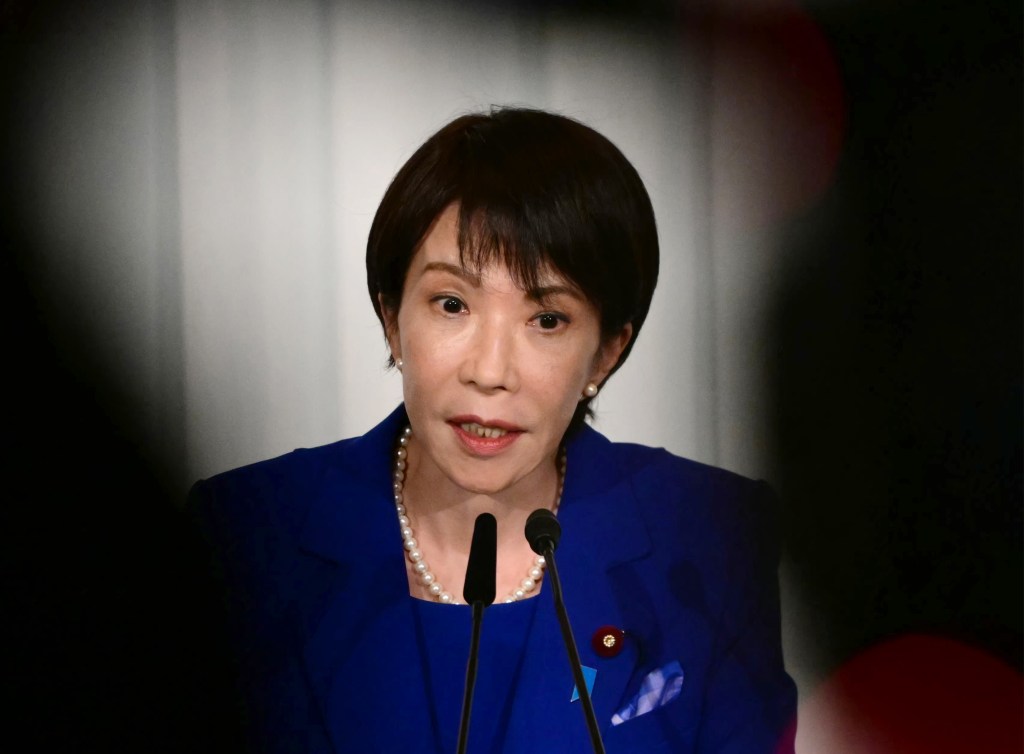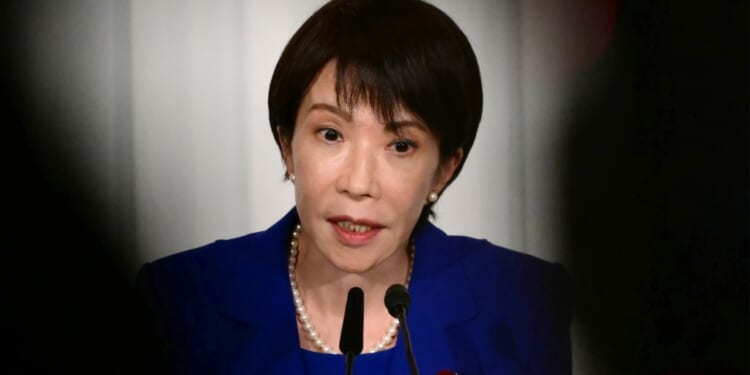
But unlike Abe, who oversaw the return of the LDP to its place atop Japan’s party system and crafted a more assertive foreign policy for the traditionally pacifist country, Takaichi faces significant constraints both at home and abroad. Internationally, she must navigate a more challenging environment, with China, Russia, and North Korea increasingly aligned and the U.S. strategy toward the Indo-Pacific deeply uncertain.
Domestically, her challenge is even more acute. The LDP is perhaps the most successful modern political party in the world. Except for interludes between 1993 and 1994, and from 2009 to 2012, it has been Japan’s default governing party for most of the country’s democratic history. But after July’s House of Councillors elections saw the LDP lose its majority, the party is facing a first: a minority in both chambers of the Diet.
Takaichi, then, will need the votes of other parties to ensure she is confirmed as prime minister by a vote of both houses of the Diet in mid-October (the lower House of Representatives wins if the houses disagree). Her first test was to try to secure the votes of the Komeito Party, a smaller centrist party that has traditionally been a partner of the LDP. Originating with a Buddhist political movement, Komeito is wary of Takaichi’s more hawkish foreign policy stances, as well as her willingness to work with politicians who had been implicated in a previous campaign financing scandal. After a meeting on Friday morning, the 26-year partnership between the LDP and Komeito collapsed, which Komeito party leader Tetsuo Saito attributed to Takaichi’s “insufficient” explanation of a political donations scandal.
Takaichi now needs to secure an additional 37 seats to hold a required 233-seat majority in the House of Representatives; but even had they received Komeito’s support, Takaichi would have still needed to look outside the LDP’s traditional sources of parliamentary backing for three more votes.
She has two main options: the conservative Japan Innovation Party, and the populist Democratic Party for the People, led by the charismatic Yuichiro Tamaki, who campaigned on the refreshingly blunt slogan of “increase take-home pay!” and enjoys growing support among disillusioned younger voters. Tamaki said Thursday, however, that his demands for tax cuts as part of a coalition agreement had not yet been met. But the DPP remains the most likely candidate to complete Takaichi’s coalition, as both she and Tamaki, like Abe, favor expansionary fiscal and monetary policies. She told reporters after winning the LDP’s leadership race that “The government must be responsible for fiscal and monetary policy. The BOJ [Bank of Japan] will then consider the most appropriate means”—a clear reference to “Abenomics,” the former prime minister’s effort to pressure Japan’s central bank to enact aggressive stimulus measures.
However, with Japan now experiencing mild inflation for the first time in decades, it’s likely that Takaichi won’t be as aggressive as her ideological predecessor, Christina Davis, a professor of Japanese politics at Harvard University, told TMD. “Japan is very good at incremental change,” Davis said, which is probably “what’s necessary at this time.”
To secure support from younger voters, Takaichi will likely need to moderate some of her more conservative cultural views. She has a history of opposing two proposed reforms that have recently become bellwethers for younger, more socially liberal Japanese voters: gay marriage and making it legal for married people to keep their original surnames (Japanese law requires couples to choose one surname, in practice overwhelmingly the man’s). On the latter issue, Takaichi has struck a peculiar balance: She legally took her husband, Taku Yamamoto’s, name when they were first married, while using her maiden name in public. However, after the couple divorced and remarried each other, her husband took her last name, becoming Taku Takaichi.
“She’s way out of step with where young people are,” Charles McClean, a political scientist at Yale who studies Japanese youth voters, told TMD of Takaichi’s social views. It’s unclear, he argued, whether “somebody coming in and just saying kind of the same old messaging” as Abe can restore the LDP’s dominance, he said, given the growth in support for upstart alternative parties. “That doesn’t feel like the moment.”
Takaichi has also spoken to a growing discontent with foreigners among many Japanese. Japan’s foreign population is only about 3 percent of the total population—far lower than in other wealthy countries—but the number of foreign workers has tripled in the past decade, and negative views of foreigners—especially those who come as migrant workers from Korea and China—are becoming common in Japan. The far-right populist party Sanseito gained seats in the Diet for the first time this summer after campaigning on an anti-immigration agenda.
Even relatively liberal younger Japanese, usually less wary of immigration, are unsettled by a recent surge of tourism to Japan, fuelled by a weak Yen, McClean told TMD. During her first campaign speech last month, Takaichi claimed that tourists kicked the beloved deer of Nara Park, where the tame animals are designated as national monuments.
Foreign policy—a field in which Takaichi has little experience—will also require walking a tightrope between her more conservative beliefs and pragmatic considerations. She will have to hit the ground running, with Japan expected to attend the annual Association of Southeast Asian Nations meeting in Malaysia and the Asia Pacific Economic Cooperation summit in South Korea later this month.
Takaichi, like other hawkish members of the LDP, will likely prioritize the “trilateral” of the U.S., Japan, and South Korea, Sheila Smith, a senior fellow for Asia-Pacific studies at the Council on Foreign Relations, told TMD. “From a security perspective, she obviously understands the trilateral and its strategic value today,” she said, noting how Takaichi has said that Japan’s trilaterals—U.S.-Korea-Japan, as well as other groupings with Australia and the Philippines, will be a priority.
Japan’s geopolitical situation is “very, very different from the Abe era,” said Mireya Solís, the director of the Center for Asia Policy Studies at the Brookings Institution. “The security landscape has deteriorated.” China has continued to affirm its “no limits” partnership with Russia, also a Pacific power, since the 2022 invasion of Ukraine. North Korea, whose missiles and bellicosity keep Japanese leaders up at night, has also increased coordination with its authoritarian neighbors, sending troops to fight alongside Russian forces in Ukraine and railing against Japanese joint military exercises with South Korea and the U.S.
Traditionally, Japan has leaned on the U.S. to counter threats from its west, and Abe made increasing security cooperation with the U.S. and amending Japan’s pacifist constitution a priority. However, America’s reliability has become an open question. Recent trade negotiations with President Trump were protracted and tense, resulting in a 15 percent baseline tariff on Japanese imports, including cars. The White House’s National Security Strategy—expected to outline Washington’s approach to confronting China—has yet to be released.
“It’s not clear where the U.S. falls right now,” Kristi Govella, senior adviser and Japan chair at the Center for Strategic and International Studies, told TMD, and said that, because of this, Japan is likely to emphasize other regional partnerships. “One of its short-term responses to fluctuations in U.S. policy has been to try to shore up other connections, or to reassure other allies,” she said.
Before working on any of those relationships, Takaichi will have to make a decision: whether to visit the Yasukuni Shrine in Tokyo, a trip she has made before, including when she held Cabinet posts. This controversial Shinto shrine commemorates all Japanese war dead, including several high-profile war criminals from World War II. A visit to the shrine in either an official or “private” capacity is a cultural lightning rod dividing the right from the left within Japan, but it is also deeply offensive to East Asian neighbors like China and South Korea, which feel that Japan has not sufficiently atoned for its actions in World War II.
If Takaichi does visit, the timing and manner of her decision will be critical. Abe made a single high-profile visit to the shrine in 2013, causing a diplomatic uproar with China and Korea, but only after his efforts to seek better relations with Beijing seemed to run into a dead end. Ishiba never paid his respects at Yasukuni, although he sent a ritual tree earlier this year.
Early signs indicate that, as with domestic policies, Takaichi may be leaning toward moderation. “I’ll make a timely and appropriate decision on how to pay my respects to the war dead,” she said Saturday, while claiming that shrine visits “should never be made into a diplomatic issue.” On Wednesday, Japanese newspapers reported that she planned to skip visiting Yasukuni during its autumn festival, held October 17-19, with her diplomatic schedule and concerns from Komeito reportedly in mind. If the decision holds, that will likely be one less diplomatic hurdle for her to overcome.
Takaichi’s aims in both foreign and domestic policy, then, are to restore and stabilize the LDP’s position—and by extension, the Japanese political establishment. “I think that we don’t appreciate enough how remarkable it is that Japan had three decades of slow growth while maintaining political stability,” compared to other rich countries, Davis told TMD. But Takaichi, a former drummer in a metal band, is known for her brashness. “My goal is to become the Iron Lady,” she declared to a group of (likely bemused) schoolchildren late last month, referencing Thatcher’s nickname.
However, constrained by a weak position in parliament and uncertain prospects abroad, she may have to adopt a less unyielding approach. Takaichi’s likely confirmation as prime minister will mark a new era for Japan, and not just because she is a woman—the LDP will have to defend its position atop Japan’s politics in a way it has rarely had to before.
The party’s goal used to be “to make politics boring,” said McClean. “But it’s not boring right now.”

















